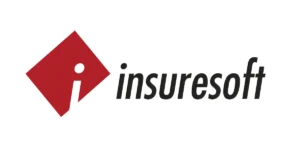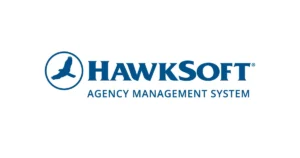Advertisement Sa
In the digitized landscape of 2024, the insurance sector stands on the brink of transformative change, propelled by advances in technology and shifting market demands. At the heart of this evolution are Agency Management Systems (AMS), sophisticated platforms designed to streamline operations, enhance customer engagement, and drive efficiency for insurance agencies of all sizes. As we navigate through the myriad of options available, identifying the best AMS for insurance agencies becomes a critical decision for businesses aiming to stay competitive in this dynamic environment. This article delves into the importance of agency management systems in the context of insurance in 2024, shedding light on the latest insurance technology trends that are shaping the industry. Through our exploration, we aim to equip insurance professionals with the knowledge they need to make informed decisions about the best agency management systems for insurance, AMS solutions, that will best serve their needs, propelling them towards a future of innovation, growth, and unparalleled customer service.
Table of Contents
ToggleThe Importance of Agency Management Systems in 2024
The insurance sector is on the brink of a significant transformation as we approach 2024. With the industry becoming increasingly complex and customer expectations soaring, the adoption of innovative technologies is no longer optional; it’s imperative. One such innovation, Agency Management Systems for insurance (AMS), is poised to redefine how insurance agencies operate, promising not only to enhance operational efficiency but also to forge stronger client relationships and offer unprecedented analytics capabilities.
The Tides of Change in the Insurance Industry
As we move into 2024, the insurance sector is expected to navigate through a sea of changes, driven by technological advancements and changing consumer behaviors. From artificial intelligence (AI) and machine learning (ML) to blockchain and big data analytics, technology is reshaping the very fabric of the insurance world. Amid this digital revolution, AMS solutions stand out as essential tools for agencies aiming to stay competitive and relevant.
Operational Efficiency: A Core Benefit of AMS
One of the primary reasons for the growing adoption of AMS is the operational efficiency it brings to insurance agencies. By automating routine tasks, such as claims processing, policy management, and customer communications, AMS frees up valuable time for agents to focus on more strategic aspects of their business. This efficiency gain not only reduces operational costs but also speeds up service delivery, enhancing customer satisfaction.
Enhanced Client Relationships through AMS
In the era of digitalization, customer expectations are higher than ever, with personalization and quick service being top priorities. AMS plays a crucial role in meeting these expectations by providing agencies with comprehensive insights into their clients’ profiles, preferences, and history. This information allows agents to tailor their interactions and services, resulting in more meaningful and enduring client relationships.
The Power of Analytics
Analytics is another area where AMS solutions for insurance shine, offering agencies the ability to sift through vast amounts of data to identify trends, forecast risks, and make informed decisions. In 2024, as the insurance landscape becomes more volatile and competitive, these analytics capabilities will be invaluable for agencies seeking to optimize their offerings, pricing, and marketing strategies.
The Growing Relevance of AMS: Supported by Statistics
The anticipated surge in AMS adoption is not mere speculation. According to a recent study, the global AMS market is expected to grow by 8% annually, reaching a valuation of $5 billion by 2025. This growth is attributed to the pressing need for digitalization across the insurance sector and the tangible benefits AMS solutions provide.
Moreover, surveys indicate that agencies using AMS can achieve up to a 25% increase in operational efficiency, with a corresponding 15% uptick in customer satisfaction. These statistics not only underscore the value of AMS but also spotlight the critical role it will play in the future success of insurance agencies.
Key Features to Look for in an Agency Management System
In the evolving landscape of the insurance industry, Agency Management Systems (AMS) have become indispensable tools for agencies aiming to streamline operations, enhance client satisfaction, and maintain competitiveness. A comprehensive AMS can transform how agencies handle client interactions, manage policies, track commissions, and report on key metrics. Understanding the critical features to look for in an AMS is essential for insurance professionals seeking to invest wisely in their technological infrastructure. This article explores the crucial AMS features alongside emerging trends that are shaping the future of insurance agency operations.
Essential in the best Agency Management Systems for insurance (AMS) Features
Client Management:
At the core of any AMS is robust client management functionality. Effective systems provide a comprehensive view of client data, including contact information, policy details, communication logs, and renewal dates. This centralized access facilitates personalized service and fosters strong client relationships, which are key to retention and business growth.
Advertisement Mana
Policy Management:
Efficient policy management capabilities allow for the seamless handling of quotes, issuances, endorsements, and renewals. A superior AMS enables agencies to manage policies across multiple carriers, reducing manual data entry and the likelihood of errors, thereby saving time and enhancing operational efficiency.
Commission Tracking:
Tracking commissions accurately is vital for financial management and agent motivation. An AMS with advanced commission tracking features ensures that commissions are calculated correctly, disputes are minimized, and agents are fairly compensated for their efforts.
Reporting Capabilities:
Insightful reporting tools within an AMS for insurance can empower agencies with actionable data on sales performance, client demographics, policy lifecycles, and more. Customizable reports can aid in strategic planning and help identify areas for improvement or expansion.
Emerging Features
As technology advances, so do the capabilities of Agency Management Systems for insurance.
AI Integrations:
Artificial intelligence and machine learning are becoming increasingly integrated into AMS solutions, offering predictive analytics, enhanced customer service through chatbots, and more efficient data processing.
Cloud-based Operations:
Cloud-based AMS platforms offer flexibility, scalability, and enhanced security. Remote access to the system allows agents to serve clients effectively from anywhere, providing a competitive edge in today’s digital world.
Mobile Accessibility:
With the growing need for on-the-go access, AMS solutions now feature mobile-friendly designs and applications. This mobility ensures that agents can access critical information and perform tasks anytime, improving responsiveness and service quality.
Importance of Scalability and Customization
As agencies grow, their needs change. An AMS that scales with your business is essential. Scalability ensures that the system can handle increasing amounts of data and transactions without compromising performance. Furthermore, the ability for customization allows agencies to tweak the system to fit their unique workflows, terminology, and processes, making the AMS an integral part of their operation rather than a limiting factor.
Investing in an Agency Management System is a strategic move for insurance agencies looking to enhance efficiency, improve client service, and stay ahead in the digital era. Identifying a system that not only covers the essential features but also embraces emerging technologies and offers scalability and customization will position agencies for success now and in the future.
Top Agency Management Systems for Insurance in 2024
In the rapidly evolving insurance industry, Agency Management Systems for insurance (AMS) have become indispensable tools for agencies aiming to streamline operations, enhance client service, and manage data more efficiently. As we look towards 2024, it’s clear that the offerings in the AMS landscape are more robust and feature-rich than ever. Here’s a closer look at the top AMS options for insurance agencies, highlighting their core functionalities, integration capabilities, user experience, and innovations that set them apart.
InsureSoft Diamond

- Core Functionalities and Standout Features:InsureSoft Diamond is designed for both personal and commercial lines and offers a comprehensive suite of applications including policy administration, billing, and claims. Its standout feature is the Diamond Data Warehouse, which provides advanced analytics to drive decision-making.
- Integration Capabilities : It boasts robust integration with third-party applications and data exchanges, streamlining the end-to-end insurance lifecycle.
- User Experience : Users commend its intuitive interface and customizable dashboard which effectively consolidates critical information, enhancing operational efficiency.
- Unique Selling Points : Its use of AI to automate underwriting and claims processes sets InsureSoft Diamond apart, vastly improving processing times and accuracy.
Applied Epic

- Core Functionalities and Standout Features : Applied Epic leads with its cloud-based architecture, offering scalability and security. Its comprehensive functionality supports all lines of business in a single application, facilitating a unified view of the client across the agency.
- Integration Capabilities : Exceptional in its ability to integrate with over 200 partner apps and third-party services, Applied Epic enhances its utility with seamless connectivity.
- User Experience : Feedback highlights its user-friendly interface and the ease with which users can access a wide range of features and data.
- Unique Selling Points : Applied Epic’s mobile app extends its capabilities to on-the-go access, ensuring agents and brokers can serve clients anytime, anywhere.
Vertafore AMS360

- Core Functionalities and Standout Features : Vertafore AMS360 is renowned for its client management, policy management, and integrated accounting features, tailored to streamline agency operations and boost client satisfaction.
- Integration Capabilities : AMS360 excels in its integration with Vertafore’s suite of insurance solutions, alongside APIs that facilitate custom integrations.
- User Experience : Users appreciate the platform’s comprehensive training resources and supportive user community, which significantly enhance the learning curve.
- Unique Selling Points : Its focus on workflow automation, backed by actionable insights from its data analytics tool, makes AMS360 a game-changer in increasing agency productivity.
HawkSoft

Advertisement Med
- Core Functionalities and Standout Features : HawkSoft stands out with its functionality that emphasizes client relationship management, aiming to enhance client retention and streamline policy management.
- Integration Capabilities : Its integration ecosystem includes numerous third-party applications, promoting efficiency across diverse operational areas.
- User Experience : High marks are given for HawkSoft’s customer service and the personalized support that accompanies its user-friendly platform.
- Unique Selling Points : HawkSoft’s commitment to being independently owned and its focus on continuous improvement through customer feedback distinguish it in fostering a close-knit user community.
Selecting the Right and the best Agency Management System
In the dynamic realm of insurance agencies, selecting the right Agency Management Systems for insurance (AMS) is pivotal to streamline operations, enhance productivity, and ensure a seamless customer experience. As we navigate through an era where technology evolves at lightning speed, identifying an AMS that aligns perfectly with an agency’s needs versus its features becomes a daunting yet vital task.
Assessing Agency Needs vs. AMS Features
The first step towards a prudent selection entails a deep dive into understanding the intricate needs of your agency. Begin by identifying the specific challenges your agency faces in daily operations. Is it customer relationship management, policy administration, claims management, or reporting and analytics that you’re struggling with? Once the pain points are clear, assess the features of various AMS to see which one addresses these challenges effectively. Look for systems that offer comprehensive solutions rather than going for a piecemeal approach.
Key Factors to Consider
- Cost : One of the primary consideration factors is the cost of implementation and the ongoing expenses. An AMS that breaks the bank is no good, no matter how comprehensive it might be. Look for a system that offers a good balance between cost and functionality. Remember, the cheapest option is not always the best.
- Scalability : Today’s small insurance agency could be tomorrow’s big player. Therefore, choosing an agency management systems for insurance that grows with your agency is crucial. The system should be able to handle an increase in workload without compromising on speed or efficiency.
- Customer Support : Post-implementation support is where most AMS providers falter. Prioritize providers who offer excellent customer service, including training for your staff, technical support, and timely system upgrades.
- User Friendliness : The best AMS system, best agency management system for insrance, loses its sheen if it’s not user-friendly. Your team should be able to navigate through the system without constant bouts of frustration. A system with an intuitive interface and simple operation will ensure higher adoption rates among your staff.
Engaging Stakeholders and Running a Pilot Program
Before making a final decision, engage with all stakeholders, including management, IT, and the end-users. Their input is invaluable since they are the ones who will work with the AMS daily. Discuss their needs, apprehensions, and expectations with the system. Addressing these concerns early on will pave the way for smoother implementation.
Furthermore, consider running a pilot program with the shortlisted AMS. A pilot program allows you to test the system in a real-world setting without fully committing to it. This phase will enable you to identify any potential issues and assess the system’s compatibility with your agency’s operations.
The Impact of Choosing the Right and the top AMS
Choosing the right Agency Management System (AMS) is transformative for insurance agencies, pivotal not just in streamlining operations but in redefining customer relations and competitive positioning. The right AMS empowers agencies to harness technology’s full potential, leading to sustainable growth and enhanced efficiency.
Operational Efficiency and Productivity
The immediate impact of implementing the right AMS lies in operational efficiency. Agencies can transition from manual, error-prone processes to automated workflows, significantly reducing time spent on routine tasks. For instance, a mid-sized agency reported a 30% increase in productivity after migrating to a modern AMS that offers advanced automation features. This leap in productivity comes from automating tasks such as policy renewals, claims management, and customer notifications, allowing staff to focus on more strategic activities.
Enhanced Customer Satisfaction
Customer satisfaction is another critical area positively affected by the right AMS choice. Today’s insurance clients expect fast, personalized service. An AMS with robust customer relationship management (CRM) capabilities provides agents with comprehensive client profiles and interaction histories at their fingertips, enabling personalized service. Success stories abound, like a regional insurance provider that saw a 40% improvement in customer satisfaction scores after deploying an AMS with an integrated customer portal, allowing clients 24/7 access to policy information and direct filing of claims.
Data-Driven Decision Making
The capacity for data-driven decision-making is a game-changer for agencies. The right AMS provides valuable insights through data analytics, helping agencies identify trends, assess risks, and make informed decisions. An agency in the southwestern U.S. leveraged AMS data analytics to better understand policyholder behaviors, leading to a 15% reduction in claim costs through targeted risk mitigation strategies.
Scalability and Adaptability
A critical long-term benefit is scalability. As businesses grow, their needs evolve. The right AMS scales alongside the business, accommodating new lines of insurance, additional users, and expanding regulatory requirements without disrupting day-to-day operations. A case in point is a rapidly growing broker that was able to seamlessly incorporate new acquisitions into its operations without any loss of service quality, thanks to choosing a scalable AMS platform.
Competitive Advantage
Finally, selecting the right AMS can provide a competitive edge. In an industry as crowded as insurance, differentiating through superior service and innovative offerings is vital. An AMS with advanced analytics, for example, can enable an agency to offer personalized insurance products that meet clients’ specific needs, setting the agency apart from competitors.
Conclusion
In an era where digital transformation is not just an option but a necessity, the insurance sector stands at a pivotal crossroads. The embrace of Agency Management Systems for insurance (AMS for insurance) symbolizes a forward leap into making operations more streamlined, client-centric, and efficient. Through the lens of the top AMS options projected for 2024, it’s clear that the future of insurance management is bright, with technology acting as both a catalyst and a facilitator.
Every best Agency Management Systems for insurance we’ve explored offers a unique blend of functionalities, from intuitive user interfaces to advanced integration capabilities, all designed to tailor-fit the diverse needs of insurance agencies. Whether it’s leveraging AI for more accurate data analysis, employing robust cybersecurity measures, or providing seamless client interaction platforms, these systems are paving the way for a more dynamic and responsive insurance industry.
As the landscape continues to evolve, the importance of selecting an AMS that not only meets the current demands but also anticipates future trends cannot be overstated. By considering the insights shared, insurance providers can make informed decisions that align with their strategic goals, ensuring resilience, competitiveness, and growth in 2024 and beyond.
Thus, we encourage insurance agencies, brokers, and professionals to reflect on the features and benefits of the leading AMS options discussed. Embracing such digital tools is a crucial step in not only navigating but thriving in the ever-evolving insurance industry. The journey toward digital excellence is both exciting and necessary, and it begins with choosing the right AMS to unlock new possibilities for efficiency, productivity, and customer satisfaction. Let’s embark on this transformative path, armed with the knowledge and insights to select an AMS that propels us toward our aspirations for 2024 and the years that follow.





